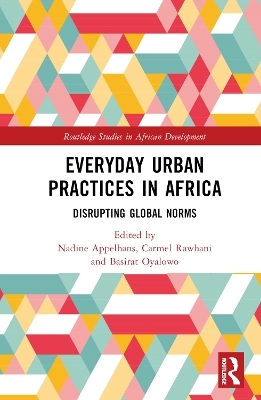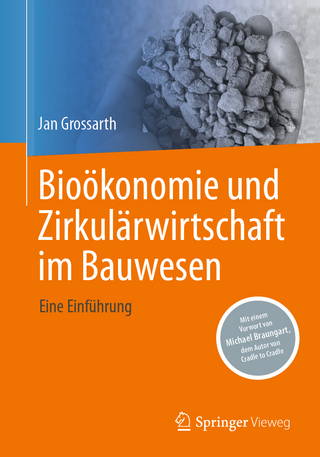
Everyday Urban Practices in Africa
Routledge (Verlag)
978-1-032-46698-9 (ISBN)
- Noch nicht erschienen (ca. August 2024)
- Versandkostenfrei innerhalb Deutschlands
- Auch auf Rechnung
- Verfügbarkeit in der Filiale vor Ort prüfen
- Artikel merken
This book disrupts the dominant underlying international norms informing urban development strategies across African cities. International policy frameworks have created a new universal agenda for developing cities. However, these frameworks have also imposed global paradigms and discourses that are often in conflict with local urbanisms. As we approach the deadline for achieving the Sustainable Development Goals, there is need for reflection and deliberation on a post-2030 agenda.
The authors identify powerful assumptions, norms, and positionalities that obfuscate the efforts to achieve sustainable development in African cities, as well as along the North-South divide. They argue that a disruptive critique of these normative concepts, grounded in the lived African urban everyday, opens up opportunities to dismantle their assumed neutrality. Through disruption, the authors critically re-interpret the meanings of policy and the praxis of local urbanism, ultimately challenging the logic of universalising concepts underpinning implementation in the current international policy system, and asserting the need for contextualised urban policies.
The book will be of interest to scholars and students of urban studies, development planning, urban governance, human settlements, development studies, urban geography and African studies. It will also be useful for practitioners including town and regional/urban planners, urban policy consultants, and international development cooperation agencies.
The Open Access version of this book, available at http://www.taylorfrancis.com, has been made available under a Creative Commons Attribution-Non Commercial-No Derivatives (CC-BY-NC-ND) 4.0 license.
Nadine Appelhans is a Senior Researcher at the Habitat Unit, TU Berlin, a Guest Researcher at the School of Architecture and Planning at the University of the Witwatersrand, and Scientific Coordinator of the Wits-TUB-UNILAG Urban Lab. Carmel Rawhani is a research and implementation consultant focusing on international financial development cooperation, working from Cologne, Germany, and Guest Researcher at the School of Architecture and Planning at the University of the Witwatersrand in Johannesburg. Marie Huchzermeyer is a Professor in the School of Architecture and Planning at the University of the Witwatersrand, South Africa and is the Director of the Centre for Urbanism and Built Environment Studies in that school. Basirat Oyalowo is a senior lecturer in Real Estate at the Oxford Brookes University. Previously she was Senior Lecturer and WITS-TUB-UNILAG Urban Lab Post doctoral fellow at University of Lagos, Nigeria. Mfaniseni Fana Sihlongonyane is Professor of Development Planning and Urban Studies in the University of the Witwatersrand, School of Architecture and Planning.
Foreword Preface 1: Introduction: Global Norms, Urban Africa, the Everyday, and Disruption Part I: Heterogeneity Section Introduction 2: Questioning the Urban-Centrism of the New Urban Agenda and Its Implications for African Cities 3: Disrupting the myth of cohesion-generating public space: Contrasting narratives from Johannesburg and Berlin 4: The hybridisation of public transport in Dar es Salaam and Nairobi: Challenging inscriptions of innovation policy in bus rapid transit systems Part II: Fluid Belongings Section Introduction 5: The Faulty Premise of “Leave No One Behind” in Lagos: A Focus on People Living with Disabilities 6: Living Among the Dead: Disrupting Narratives on the Inclusion of the Homeless Through a Case of Public Open Space in Johannesburg 7: Exploring the Potential of the Spatial Agency of Refugees and IDPs to Inform Alternative Approaches of “Protection”: Case Studies from Lagos and Berlin Part III: Persistence Section Introduction 8: Unsettling the Formal–Informal Binary: the Right to Development and Self-Determination in the Harry Gwala Settlement Trajectory in Ekurhuleni, South Africa 9: Policy Transfer and the Misplaced Enabling Role of Government in Nigeria’s Housing Policy 10: The SDG Monitoring Framework Turns a Blind Eye to the Daily Realities of Lived Tenure Security in African Hybrid Land Transaction Systems: A South African Case Part IV: Interplay Section Introduction 11: Local Government Autonomy, Electoral Systems and Their Implications for Social Contracts in Nigeria: An Overlooked Obstacle to SDG Implementation 12: When Borders Do Not Matter: Contextualising Socio-Developmental Challenges in Urbanised Nigeria–Benin Border Communities 13: Transport Infrastructure as a Driver of Sustainable (Urban) Development in Africa? Critical Reflections on The Interrelations Between Sustainability Agendas and Infrastructure-Led Development through Experiences from Ethiopia 14: Conclusion: Towards Realistic Global Frames That Embrace Everyday Urban Practices in Africa
| Erscheint lt. Verlag | 31.8.2024 |
|---|---|
| Reihe/Serie | Routledge Studies in African Development |
| Zusatzinfo | 1 Tables, black and white; 25 Halftones, black and white; 25 Illustrations, black and white |
| Verlagsort | London |
| Sprache | englisch |
| Maße | 156 x 234 mm |
| Themenwelt | Naturwissenschaften ► Biologie ► Ökologie / Naturschutz |
| Naturwissenschaften ► Geowissenschaften ► Geografie / Kartografie | |
| Sozialwissenschaften ► Soziologie ► Spezielle Soziologien | |
| ISBN-10 | 1-032-46698-7 / 1032466987 |
| ISBN-13 | 978-1-032-46698-9 / 9781032466989 |
| Zustand | Neuware |
| Haben Sie eine Frage zum Produkt? |
aus dem Bereich


